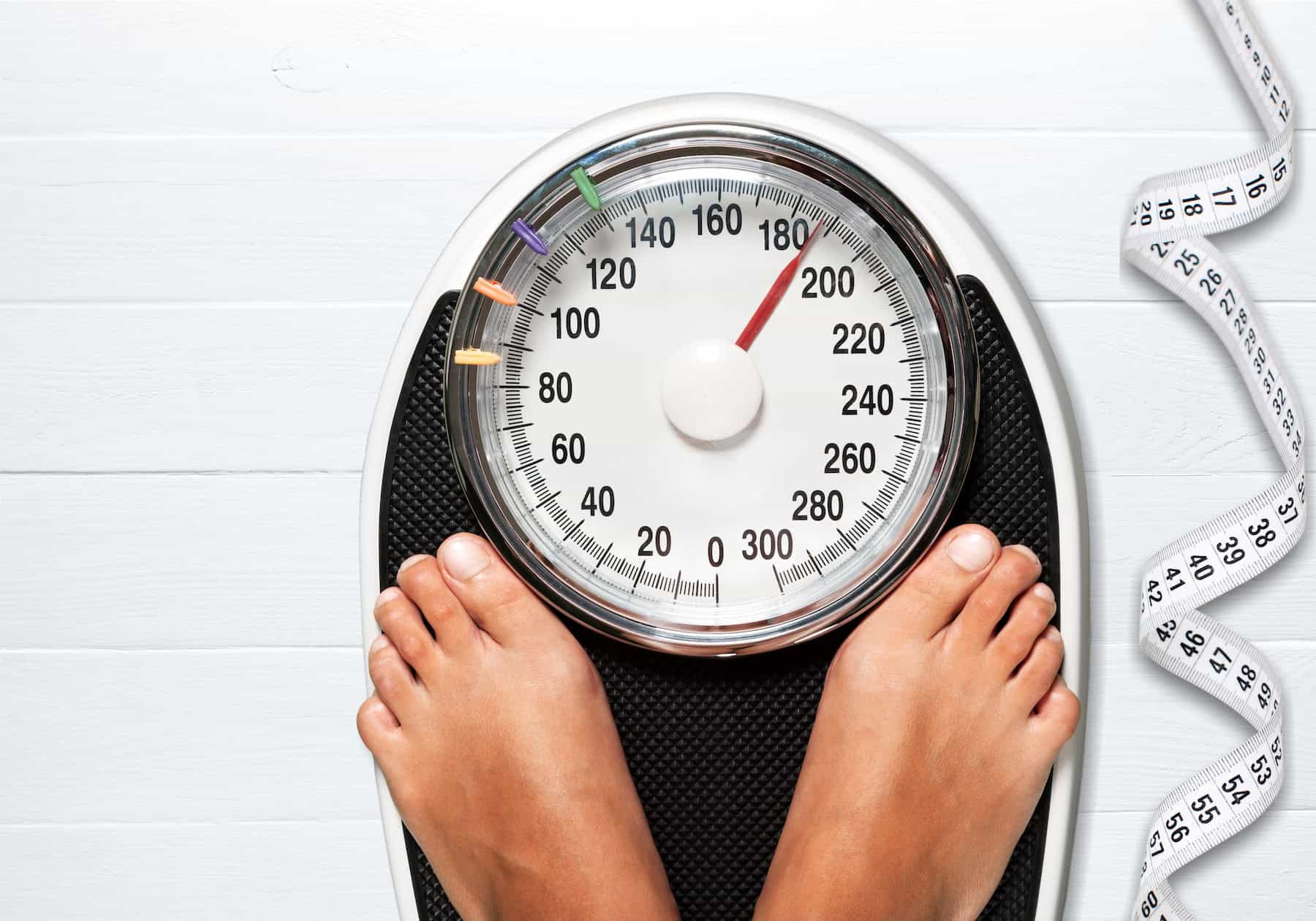Boost Your Liposuction Results with a Customized Weight Loss Plan
Liposuction can be a game changer for your body. But to truly maximize those results, a customized medical weight loss plan is essential for lost pounds, addressing obesity, achieving body goals, and improving body contour. This innovative weight loss program tailors comprehensive weight loss strategies to fit your unique needs and goals for sustainable weight loss in a physician led weight management program. It goes beyond just diet and exercise; it focuses on sustainable lifestyle changes, including lipo dissolve, that keep the weight off long-term.
Key Takeaways
-
A customized medical weight loss plan can enhance your liposuction results by helping you maintain your new shape and weight.
-
Combining medical weight loss with liposuction leads to better long-term outcomes, as it encourages healthy habits and sustainable lifestyle changes.
-
Focus on establishing healthy habits, such as balanced nutrition and regular exercise, to support your recovery, sustainable weight loss, and contouring goals after liposuction, as part of your weight management program to overcome weight loss challenges and enhance your weight loss treatment.
-
Follow specific post-liposuction nutrition guidelines to ensure your body heals properly while also promoting fat loss.
-
Set realistic weight loss goals to stay motivated and avoid frustration; remember that gradual changes, unlike lipo dissolve, are more effective than quick fixes.
-
Be patient and consistent in your efforts; monitoring your progress at the medical weight loss clinic will help you adjust your plan for realistic weight loss goals post lipo as needed for optimal results.
Understanding Liposuction Basics
Primary Goal
Liposuction aims to remove excess fat deposits from specific areas of the body at a medical weight loss clinic. This procedure at a medical weight loss clinic helps improve body contours and enhances overall appearance with lipo dissolve. Many people seek liposuction at a medical weight loss clinic to achieve a more sculpted look. It is important to understand that liposuction is not a weight-loss solution. Instead, it serves as a method for body sculpting.
Not a Weight-Loss Solution
Liposuction does not replace healthy lifestyle choices. Individuals should not rely on lipo for significant weight loss. The procedure targets stubborn fat areas at a medical weight loss clinic that diet and exercise may not affect, using lipo. Experts emphasize that maintaining a healthy weight is crucial before and after the lipo procedure. A customized medical weight loss plan can complement liposuction results effectively.
Common Treatment Areas
Liposuction treats various body parts. The abdomen is one of the most common areas for lipo at a medical weight loss clinic. Many individuals desire a flatter stomach, making this area a popular choice for lipo and medical weight loss clinic. Thighs also receive attention through liposuction. Excess fat in the thighs can be challenging to reduce through traditional methods, but lipo at a medical weight loss clinic may help.
Arms are another area where people often seek lipo services at a medical weight loss clinic. Fat deposits in the arms can create an unappealing appearance, often leading to considerations for lipo. Liposuction can help achieve slimmer, more toned arms. Other areas include the back, neck, and chin.
Methods of Liposuction
Different methods exist for performing liposuction. Traditional suction-assisted lipectomy is one option. This method involves inserting a cannula to remove fat manually. Another technique is tumescent liposuction, which uses a saline solution to minimize bleeding and pain.
Injection lipolysis is another innovative approach. This method involves injecting substances to dissolve fat cells without surgery. Lipo dissolve services have gained popularity for their non-invasive nature. However, these methods may vary in effectiveness compared to traditional liposuction.
Expert Guidance
Consulting with experts is essential when considering liposuction or other fat reduction methods. They can evaluate individual needs and recommend suitable procedures. A tailored approach ensures better results and satisfaction with the outcome.
Understanding these basics about liposuction prepares individuals for what to expect. It highlights the importance of combining procedures with healthy habits for optimal results.
Benefits of Combining Medical Weight Loss with Liposuction
Sustainable Results
Medical weight loss programs offer a sustainable approach to maintaining results after liposuction. These programs focus on long-term lifestyle changes. They help patients understand nutrition and exercise better. This knowledge leads to healthier habits. Patients can avoid regaining weight after surgery.
Liposuction removes stubborn fat, but it does not prevent future weight gain. A medical weight loss clinic provides ongoing support. This support helps individuals stick to their goals. Programs often include counseling and regular check-ins. These elements keep patients accountable and motivated.
Targeting Fat Areas
Combining medical weight loss with liposuction targets both overall weight and specific areas. Many people struggle with certain fat deposits that resist diet and exercise. Liposuction effectively removes these deposits.
However, a physician-led weight management program can further enhance results. It encourages healthy eating and regular physical activity. This combination addresses both the visible fat and underlying issues contributing to weight gain.
Comprehensive Transformation
The synergy of liposuction and medical weight loss leads to a more comprehensive body transformation. Patients experience not only physical changes but also emotional benefits. Feeling confident in one’s body can positively impact mental health.
Medical weight loss experts design customized plans tailored to individual needs. These plans consider personal health history, lifestyle, and goals. The result is a holistic approach that promotes lasting change.
Combining these two methods can lead to improved self-esteem and satisfaction with one’s appearance. Individuals often find themselves more motivated to maintain their results through healthier choices.
Long-Term Support
Support from medical professionals is crucial during this journey. Medical weight loss programs provide guidance throughout the process. Regular consultations allow for adjustments based on progress.
This ongoing support system reinforces commitment to health goals. Patients learn how to make informed choices about food and exercise. They also gain tools to manage stress, which can affect eating habits.
Establishing Healthy Lifestyle Habits Post-Liposuction
Balanced Diet
A balanced diet is crucial after liposuction. It helps maintain the results achieved through the procedure. Consuming a variety of foods ensures your body gets essential nutrients. Focus on fruits, vegetables, lean proteins, and whole grains. These foods support healing and improve overall health.
Avoid high-calorie, processed foods. They can lead to weight gain and counteract your liposuction results. Instead, plan meals that are rich in fiber and low in added sugars. This approach helps you feel full longer and reduces cravings.
Regular Physical Activity
Regular physical activity plays a vital role in sustaining weight loss. Aim for at least 150 minutes of moderate exercise each week. Activities like walking, swimming, or cycling can be effective. Incorporating strength training exercises also builds muscle mass, which boosts metabolism.
Set achievable fitness goals to stay motivated. For example, start with short workouts and gradually increase duration and intensity. Engaging in group classes or finding a workout buddy can make exercising more enjoyable. Staying active not only helps prevent weight regain but also improves your mood and energy levels.
Stress Management Techniques
Managing stress is essential for overall well-being. High-stress levels can lead to unhealthy eating habits and weight gain. Practicing techniques such as mindfulness, meditation, or yoga can help reduce stress. These methods promote relaxation and mental clarity.
Consider setting aside time each day for self-care activities. Simple practices like reading, journaling, or spending time outdoors can be beneficial. Prioritizing sleep is also important; aim for 7-9 hours each night to support recovery and health.
Incorporating these lifestyle changes into your daily routine will enhance your liposuction results. Embracing a healthier lifestyle takes commitment but leads to long-term benefits for both body and mind.
Post-Liposuction Nutrition Guidelines
Nutrient-Dense Foods
Consuming nutrient-dense foods is essential after liposuction. These foods help the body recover and maintain results. Focus on fruits, vegetables, whole grains, lean proteins, and healthy fats.
Fruits like berries and oranges provide vitamins. Vegetables such as spinach and broccoli are rich in minerals. Whole grains like quinoa and brown rice offer fiber. Lean proteins from chicken or fish support muscle repair. Healthy fats from avocados and nuts promote overall health.
A balanced diet helps the body heal faster. It also prevents cravings for unhealthy snacks. Eating small, frequent meals can keep energy levels stable. This approach supports metabolism and aids in weight management.
Hydration Importance
Staying hydrated is crucial for recovery after liposuction. Water plays a vital role in metabolic processes. It helps transport nutrients throughout the body. Proper hydration also supports skin health, making it look vibrant and youthful.
Aim to drink at least eight glasses of water daily. Herbal teas can be a good alternative too. Avoid sugary drinks as they add empty calories without benefits. Keeping hydrated can reduce swelling and improve healing time.
Monitor your body’s signals for thirst. If you feel thirsty, drink water immediately. Staying ahead of dehydration can enhance your overall well-being.
Foods to Avoid
Avoiding high-sugar and high-fat foods is important post-surgery. These foods can lead to new fat accumulation, counteracting liposuction results. Sugary snacks like candy and cookies spike insulin levels. This spike can trigger fat storage in the body.
Fatty foods such as fried items or processed meats contain unhealthy fats. Consuming these can hinder recovery and cause weight gain. Instead, focus on healthier alternatives like baked or grilled options.
Reading food labels helps identify hidden sugars and unhealthy fats. Opt for snacks like nuts or yogurt instead of chips or sweets. Making smart choices keeps your body on track for long-term success.
Support Through Education
Educating yourself about nutrition can empower your journey post-liposuction. Understanding what to eat helps create a sustainable eating plan. Consider consulting a nutritionist for personalized advice tailored to your needs.
Group classes or workshops on healthy eating can provide additional support. Engaging with others on similar journeys fosters motivation and accountability.
Effective Exercise Strategies for Better Contouring
Strength Training
Incorporating strength training into your exercise plan is essential. It helps build muscle and enhances body contours. Focusing on major muscle groups, such as the thighs and abdomen, can improve your silhouette. Aim for at least two sessions per week. Use weights or resistance bands to increase intensity.
Strength training not only shapes your body but also boosts metabolism. Increased muscle mass means your body burns more calories at rest. This can be particularly beneficial after liposuction. It helps maintain the results achieved through the procedure.
Cardiovascular Exercises
Cardiovascular exercises are crucial for boosting metabolism. Activities like running, cycling, or swimming can support weight maintenance effectively. Aim for at least 150 minutes of moderate-intensity cardio each week. This will help you burn calories and improve heart health.
High-Intensity Interval Training (HIIT) is also an excellent option. It combines short bursts of intense activity with rest periods. HIIT can maximize calorie burn in a shorter time frame. This makes it easier to fit into a busy schedule while still achieving significant results.
Flexibility and Core Exercises
Flexibility and core exercises play a vital role in overall fitness. They enhance posture and stability, which contributes to better body contouring. Incorporate activities like yoga or Pilates into your routine. These practices improve flexibility and strengthen core muscles.
Strong core muscles support proper alignment and balance. This can make daily activities easier and reduce the risk of injury during other workouts. Improved flexibility can enhance your range of motion during strength training and cardio sessions.

Tailored Exercise Programs
Creating customized exercise programs is key to achieving optimal results. Consider working with a fitness professional who understands your specific needs post-liposuction. They can design an exercise plan that complements your medical weight loss plan.
Track your progress regularly to stay motivated. Adjust your workouts based on how your body responds over time. Staying consistent with both diet and exercise will yield the best outcomes.
Emotional Commitment
Emotional commitment is vital when pursuing body contouring goals. Engaging in exercise not only improves physical appearance but also boosts mental well-being. Many find that regular activity reduces stress and increases self-esteem.
Connect with others who share similar goals for added motivation. Group classes or workout partners can create a supportive environment. This social aspect can make exercising more enjoyable and less of a chore.
Setting Realistic Weight Loss Goals
Achievable Goals
Setting realistic weight loss goals is crucial for success. Many people aim too high and end up disappointed. Instead, focus on modest weight loss targets. For example, losing 1 to 2 pounds per week is a safe and sustainable rate. This approach keeps motivation high and helps maintain progress over time.
Measurable goals also play a key role. Write down your targets and track your progress. This can include weekly weigh-ins or measuring body parts. Seeing results, even small ones, can boost confidence. A clear plan makes the difficult weight loss journey more manageable.
Healthcare Consultation
Consulting with healthcare providers is essential for creating a personalized weight loss plan. They can assess individual health needs and recommend effective weight loss strategies. A medical professional can help identify any underlying issues that may affect weight loss efforts.
A safe weight loss plan should consider both diet and exercise. Professionals can suggest dietary changes tailored to personal preferences. They can also recommend suitable physical activities based on fitness levels. This guidance ensures that your weight loss program is effective and safe.
Focus on Health
Focusing on overall health rather than just numbers on the scale leads to better outcomes. Weight management should not be solely about losing pounds. It should also involve improving physical fitness and mental well-being.
Incorporating healthy habits into daily life is vital. Eating nutritious foods, staying active, and getting enough sleep all contribute to sustainable weight loss. These habits support major weight reduction while enhancing quality of life.
Avoid comparing yourself to others during your weight loss journey. Everyone’s body responds differently to diet and exercise. Celebrate personal achievements instead of fixating on unrealistic standards.
Overcoming Challenges
Weight loss challenges are common, but they are not insurmountable. Recognizing potential obstacles can help in planning effective responses. Stress, emotional eating, and social situations often hinder progress.
Developing coping strategies is important for managing these challenges. For instance, practicing mindfulness can reduce stress-related eating. Finding a support system, like friends or family, encourages accountability.
Creating a flexible weight loss plan allows for adjustments as needed. Life events may disrupt routines, but having a backup strategy helps maintain momentum.
Importance of Patience and Consistency
Significant Changes
Patients must understand that significant changes take time. Liposuction can reshape the body, but it is not a magic solution. Results will not appear overnight. It requires consistent efforts to see lasting outcomes. The journey toward achieving your weight loss goals involves more than just the procedure itself.
Behavior modification plays a crucial role in this process. Patients should focus on developing healthy habits. These habits support their aspirations for improved health and appearance. Rushing into drastic changes often leads to disappointment. Instead, gradual adjustments yield better results.
Celebrating Milestones
Clients should celebrate small milestones along their journey. Each step forward boosts confidence and motivation. Recognizing achievements, no matter how minor, creates a positive mindset. This approach reinforces commitment to the overall plan.
For instance, weight loss support can help with losing the first five pounds or fitting into a favorite outfit, which can be significant victories. These moments remind patients of their hard work and dedication. They serve as motivation to keep going.
Support from friends and family also enhances this experience. Sharing progress with loved ones makes the journey enjoyable. Their encouragement helps maintain focus on long-term goals.
Long-Term Commitment
Long-term commitment is essential for maintaining results after liposuction. Patients must continue their medical weight loss plan even after seeing initial changes. This ongoing care ensures that the efficacy of the procedure lasts.
Vitality and health require continuous effort. Regular exercise and balanced nutrition are critical components of success. Adopting these practices leads to better overall well-being.
Understanding that setbacks may occur is important. Patients might face challenges that test their resolve. However, perseverance is key during these times. Returning to established habits can help regain momentum.
Support Systems
Having a support system strengthens this commitment. Engaging with healthcare providers ensures accountability and guidance throughout the process. Regular check-ins help track progress and adjust plans as needed.
Patients should seek out groups or communities focused on weight loss journeys too. Connecting with others who share similar experiences fosters motivation and encouragement.
In summary, patience and consistency are vital in maximizing liposuction results through a customized medical weight loss plan. Significant changes take time, but celebrating milestones maintains motivation. A long-term commitment ensures lasting outcomes, enhancing both appearance and confidence.
Avoiding Fad Diets and Quick Fixes
Dangers of Fad Diets
Fad diets often promise rapid weight loss. They attract many people seeking quick results. However, these diets usually lack scientific backing. Most fad diets restrict food groups or calories drastically. This can lead to nutrient deficiencies. Over time, they may harm your metabolism and overall health.
These diets also create a cycle of weight loss and gain. People may lose weight quickly but regain it just as fast. This pattern is known as yo-yo dieting. It can be frustrating and demoralizing. Instead of focusing on quick fixes, consider long-term solutions.
Evidence-Based Approaches
Evidence-based approaches focus on proven methods for weight management. Traditional weight loss methods like balanced diets and exercise work effectively. These methods promote sustainable changes rather than temporary fixes.
An innovative weight loss program includes personalized strategies. Nutritional counseling can help individuals understand their unique needs. By addressing factors like appetite and metabolism, one can develop a specialized solution that fits their lifestyle.
Studies show that gradual weight loss is more effective than rapid loss. Losing 1-2 pounds per week is a healthy target. This approach allows the body to adjust without stress. It also helps maintain motivation and commitment.
Importance of Sustainable Changes
Sustainable lifestyle changes are key to lasting results. Instead of following restrictive diets, focus on balanced nutrition. Incorporate various food groups into meals. This ensures the body receives essential nutrients.
Dietary fats should not be entirely eliminated. Healthy fats support brain function and overall wellness. Include sources like avocados, nuts, and olive oil in your diet.
Physical activity plays a significant role in weight management. Aim for at least 150 minutes of moderate exercise each week. This can include walking, swimming, or cycling. Regular exercise boosts metabolism and improves mood.
Mindful eating is another important aspect of a sustainable approach. Pay attention to hunger cues and portion sizes. This practice helps prevent overeating and promotes a healthier relationship with food.
In summary, avoiding fad diets is crucial for real progress. Focus on evidence-based methods that promote overall health. Embrace sustainable changes that fit your lifestyle for long-lasting results.
Monitoring Progress and Adjusting Plans
Regular Check-ins
Healthcare providers play a crucial role in monitoring progress. Regular consultations help track outcomes and ensure the treatment plan remains effective. These check-ins allow for adjustments based on individual health status. Providers can offer valuable weight loss support guidance on diet and exercise changes.
Patients should schedule these appointments frequently, especially after starting a new weight loss program. This ongoing monitoring can identify areas needing improvement. It also provides an opportunity to discuss any challenges faced during the process.
Adjusting Diet and Exercise
Diet and exercise plans require flexibility. As results come in, adjustments may be necessary. A successful weight loss journey involves recognizing what works and what doesn’t. Tailoring these plans can lead to better outcomes.
For instance, if weight loss stalls, it might be time to change calorie intake or increase physical activity. Patients should not hesitate to communicate their experiences with their healthcare team. This feedback is essential for fine-tuning the approach.
Accountability Tools
Using tools like food diaries can enhance accountability. Tracking daily meals helps individuals stay aware of their eating habits. Similarly, fitness trackers provide insights into physical activity levels. These tools support ongoing monitoring of progress.
Patients should consider setting specific goals for both diet and exercise. Writing down these goals can foster commitment. Sharing them with a healthcare provider adds another layer of accountability.
Managing Expectations
Understanding realistic expectations is vital in any weight loss journey. Quick fixes are often tempting but rarely sustainable. A customized medical weight loss plan focuses on long-term results rather than immediate changes.
Individuals should remember that every body responds differently to treatments. Progress may vary from person to person. Maintaining open communication with the healthcare team helps manage these expectations effectively.
Team Support
A supportive team enhances motivation and success rates. This team may include doctors, nutritionists, and fitness trainers. Each member plays a role in guiding patients through their weight loss journey.
Regular updates from each team member keep everyone aligned with the overall plan. Sharing successes and setbacks fosters a collaborative environment. This support system is crucial for maintaining momentum.
Closing Thoughts
Boosting your liposuction results with a customized medical weight loss plan is key. Combining these approaches enhances your outcomes, helping you achieve the body you desire. Focus on healthy habits, proper nutrition, and effective exercise to maintain your results. Set realistic goals and stay patient for lasting success.
Your journey doesn’t end after the procedure. Monitor your progress and adapt your plan as needed. Avoid quick fixes that promise overnight results. Instead, commit to a sustainable lifestyle. Take charge of your health today. Start crafting a personalized weight loss strategy that aligns with your liposuction results. Your future self will thank you!
Frequently Asked Questions
What is liposuction?
Liposuction is a cosmetic procedure that removes fat from specific areas of the body. It helps contour your shape and can enhance overall appearance when combined with a healthy lifestyle.
How does a medical weight loss plan improve liposuction results?
A customized medical weight loss plan can optimize your body’s composition, enhancing the effects of liposuction. It helps maintain results, promotes healthy habits, and minimizes the risk of regaining fat.
What should I eat after liposuction?
Focus on a balanced diet rich in lean proteins, whole grains, fruits, and vegetables. Stay hydrated and limit processed foods to support healing and maintain results.
How soon can I exercise after liposuction?
Consult your doctor for personalized advice. Generally, light activities can begin within a week, while more intense workouts may be safe after four to six weeks.
Why are realistic weight loss goals important?
Setting realistic goals helps you stay motivated and focused. It allows for sustainable changes rather than drastic measures, promoting long-term success after liposuction.
Can fad diets affect my liposuction results?
Yes, fad diets can disrupt your metabolism and lead to unhealthy weight fluctuations. It’s best to follow a balanced, sustainable eating plan to maintain your liposuction results.
How do I monitor my progress post-liposuction?
Track your weight, measurements, and how your clothes fit. Regularly assess your diet and exercise routines to ensure you’re on the right path toward achieving your goals.






